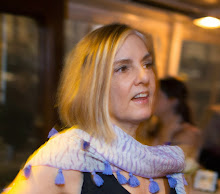I care deeply about my birth city, New Orleans as well as southwest Louisiana and the Atchafalaya Basin, and I don't think I'll ever tire of thinking or writing about the personalities of this area, its cultural and environmental landscapes, the ways in which it contributed to my own personality. Although I've written about New Orleans most of my writing life, since I haven't lived there in over 20 years I've come to understand the kind of writing I do about it as a kind of travel writing. Since I was raised there, I also can hardly ever write about it without evoking the past, and I am feeling more and more that I want to write about the present.
The jazzy spice, the seductive roux of the city is, for me, also inextricably mixed in with a kind of sadness and grief that sometimes feels unbearable. New Orleans is where my father, an alcoholic, died at 59 of advanced cirrhosis; it's where my younger brother died in his early 20s of a drug overdose; where my aunt also died of a drug overdose; where my brother-in-law, was stabbed to death in a drug deal (crack); where another brother-in-law committed suicide, and where my only other brother died at 41 of a heart attack most likely brought on by abuse of steroids. My only living uncle died--his wife would say of a broken heart--after watching Katrina's floods drown his horses and destroy everything--everything--he owned. Almost everyone on my mother's side of the family (except, oddly enough, for my mother) had a serious problem with alcohol; even my grandmother developed cirrhosis, although she died of something else. I've written about these people I loved in my poems and in my memoir, Swamp Songs, and sometimes I feel that I've written too much about alcoholism and addiction. Move on, I tell myself, write about something else. Be happy! Look at how successful your life is! See how lucky you are that you escaped!
But it's not that easy. I feel, sometimes, that this subject was given to me, and to not write about it is to somehow abandon those I loved who are now dead. And what about those others, that tribe of others, who still live and suffer? Jung wrote that an alcoholic is a person looking for Spirit with a big S who gets distracted by spirit with a small s. This is why addicts and alcoholics, recovering or not, sometimes seem to be so intensely spiritual, or that you can see all their spirit is concentrated in the superficial creation of spirit.
I finished a manuscript of poems a couple years ago, Psalms of the Damned, that, in my heart, I wrote for those who have loved ones who are in the grip of something they can't control. I wrote the manuscript during the dark time when I had to commit a member of my family for drug and alcohol abuse. The manuscript came close to being published, but finally was not; one editor said that though he liked the poems they were too "dark" for his readership.
I like dark poems; I like poems that invite us to go where we would never go alone ("Let us go then, you and I . . . ), I like trusting that the writer will get us back. I recently judged a poetry contest for poetry press and the manuscript I picked to publish was very dark--maybe I'll write about it in a future post--but relentlessly honest. I find consolation in darkness, I feel inspired by those who dare to go where most would not. I don't need the false redemptive endings. I want to look in every corner. Most days I would agree with Bruce Weigl, who writes in his unforgettable poem, "The Impossible": say it clearly and you make it beautiful, no matter what.

Bruce Weigl is amazing. Was really moved by this entry.
ReplyDelete